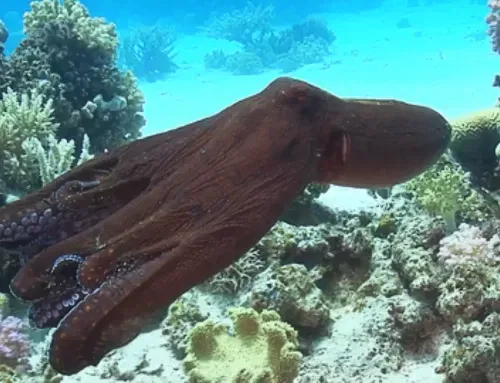We tend to think about our life as a series of episodes or time periods that we remember – our childhood, college, marriage, children, grandchildren, profession, specific events, activities that mean a lot to us. This list will differ for everyone, but will be equally important for all. For some time now I have been writing personal essays on episodes in my life, which I hope to link as a memoir. In addition to the episodes themselves, my choices of subjects to write about are telling, since they are selected from numerous possibilities.
I started this project when I visited my old high school friend, Van Andruss, who lives off the grid in British Columbia near Lilloet. I hadn’t seen or heard from him in over fifty years, so when he found me on the Internet I couldn’t resist going up to his northern haven in Canada and see him again. He raises his own food, gets his power from a home generator and is essentially self-sufficient in a tiny community that evolved from a commune that he had started many years ago. He told me that he had just installed a toilet in his house after thirty years of using an outhouse. He loves to play the piano, read and write, which he does beautifully, and he publishes an annual literary journal – Lived Experience. It comes out each December and circulates mainly in British Columbia. Lived Experience only accepts prose and poetry based on real experiences – in a word, nonfiction. Oh my god, only stuff that tells the truth, whatever that is. When I visited Van I was strictly a fiction guy. Under Van’s influence (thank you, Van) I started writing personal essays on my life experiences, and have published one a year since 2009. These six essays are reproduced on my website, where you are now.
The other night my writing group critiqued one of my essays, On the Windowsill, which is about my trip visiting Van, as well as an extension of that trip to Puget Sound to work on my still unpublished novel. Buried in my essay is the comparison of the vastly different lives that Van and I have led, despite that we started on the same playing field in high school. Life and character drift people apart, yet when I met Van again after all those years I felt a bond, as I believe he did too, a comfort that melted the geographical, intellectual and family distances between us.
I wrote in On the Windowsill the following:
“When our lives diverged, I focused intensely on science and career, while Van found his identity by traveling and experimenting. As I listen to his tale I imagine freedom with envy: I think how lucky I am that his life enriches mine by our friendship. Perhaps that’s the way we fill the voids of our incomplete lives.”
In his critique, Jim O’Sullivan, a member of my writing group, asked me after reading this passage, “What is a life complete? ” I had no universal answer to that question. Each life is unique and it depends on whether the individual feels it complete or not. Jim’s question, however, prompted me to look up an earlier draft of my novel, Jellyfish Have Eyes (now published), where the protagonist, Ricardo Sztein, reflects on his life as a series of events by using a metaphor of jumping from rock to rock in a stream:
“He closed his eyes and imagined the journey of his life as hopping on rocks in a flowing stream. There was the big boulder of Papi in the sunshine next to the smaller one of his mother under a fallen tree…”
and it goes on with each different rock another important event or aspect of his life. I deleted this passage from the final draft since I didn’t think it advanced the story, as well as remembering that I was told that good writers ‘kill their babies’, the parts they like the best. Too bad. Why kill what you love? Writing is weird that way.
The interesting part that I deleted that related to Jim’s question is not the rock metaphor, but the following paragraph:
“But it felt insignificant, too limited, to define his life by a few steppingstones within a stream. His mind returned to jellyfish that saw the continuity of time by visualizing the grandeur of evolution – remarkable and all encompassing! He wondered how it would feel to see life’s journey as the flowing stream rather than discrete rocks that stayed in place, but how impersonal that would be, not to have one’s own rocks, personal islands, monuments as it were. How sad.”
And that’s what made me think of our lives not limited by episodes but also encompassing the flowing stream between the rocks. This stream occupies far more space than the rocks, and it flows continuously, like our aging in time. Think of your life. How much waiting for events, how much boredom, how many interesting thoughts or yearnings that slip through our minds, how much preparation for events, how much confusion and uncertainty and anxiety, how much disappointment that you treated with grace, and how much satisfaction and enjoyment? Recuperation from an illness or accident is often more time-consuming and significant than the illness or accident itself. Our flowing streams consist of these unrecorded times and fill our lives. The stream of life bows to the episodes, the rocks, and is given short-change, if not neglected. Yet, this very stream might be considered the dark matter of our lives, the invisible part that seeps between and bathes the rocks. Mysterious, abundant dark matter accounts for more of the universe than all the visible galaxies combined. Your genes follow the same pattern. An optimistic estimate is that we understand the meaning of 10-20% of our genome, ignoring the fact that about 99% of the genes in our body come from microbes, not our parents, not from sources we know about. Yet, we judge our talents and our fate on the few genes we consider. So, how to judge the “completeness” of our lives? Personal essays – the episodic rocks that we select – may be equated to mountain peaks that are meaningless without the huge bulky mountains underneath. Give yourself a break. The episodes count, of course, but so does all the time you sat and thought, worried and planned, stayed behind the scenes so others could shine, all that important dark matter – your flowing stream – count as well to make you who you are and complete your life.






Very interesting Joram, giving a thought to the dark places in my life, that I have given much attention to.
– ritu trivedi
Beautiful!
– Deborah Hartman